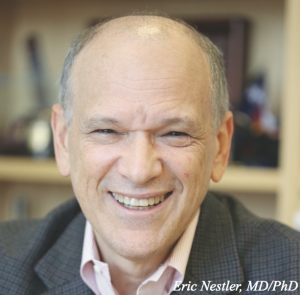 It is an honor and a pleasure to have this opportunity to serve as Interim Director of the MD-PhD Program at Mount Sinai. First, I’d like to thank Dr. Yasmin Hurd for her passionate and tireless devotion to the Program during her years as Director. I wish her well in her new role as Director of Mount Sinai’s Center on Addictive Disorders. Yasmin is a nationally and internationally renowned translational researcher in drug addiction and I cannot think of anyone better suited to take on the task of driving our Medical Center’s efforts in addiction sciences and treatment.
It is an honor and a pleasure to have this opportunity to serve as Interim Director of the MD-PhD Program at Mount Sinai. First, I’d like to thank Dr. Yasmin Hurd for her passionate and tireless devotion to the Program during her years as Director. I wish her well in her new role as Director of Mount Sinai’s Center on Addictive Disorders. Yasmin is a nationally and internationally renowned translational researcher in drug addiction and I cannot think of anyone better suited to take on the task of driving our Medical Center’s efforts in addiction sciences and treatment.
It is a privilege to guide Mount Sinai’s MD-PhD Program during this period of transition in part because I am a “MuD-PhuD.” Every aspect of my professional life has been guided by my combined training in biomedical sciences and clinical medicine. This training prepared me—it prepares all of us—uniquely among our peers for original approaches to biomedical research and for leadership roles in academic medicine. I completed my MD- PhD training—still in the early days of NIH’s MSTP—in 1983. I then completed residency training in psychiatry and, at the tender young age of 33, became an assistant professor and established an independent laboratory. There are a few aspects of this training experience that warrant comment.
I lived firsthand the numerous, challenging transitions that every MD-PhD faces during his or her training and beyond. I left my medical school class behind to enter the lab. I returned to clinical clerkships after a 3.5 year hiatus. I returned to hardcore research toward the end of residency training after another several year hiatus. It is no wonder that many of our nation’s MD-PhDs do not devote their careers to academic medicine. There has been unfortunate creep in training timelines so that today’s MD-PhD graduates are often spending 8 years in their combined program (not 6-7 as in my day) and devoting more time to residency training (with less not more research time offered to research track residents), resulting in a still older age by the time of their first faculty appointment.
We have to do better. Mount Sinai is most strongly committed to leading the way nationally toward optimizing the MD-PhD experience. Through creative renovation of the Program’s preclinical curriculum, establishing greater flexibility in the timing of clinical clerkships, and capturing synergies while removing redundancies that are inherent across medical and graduate school curricula, we will dramatically improve our training program. While many of our MD-PhD students will pursue their dissertation research in traditional research projects, we also want to foster the ability of some students to do non- traditional theses in areas that truly bridge the research, clinical, and entrepreneurial worlds. In parallel, many of Mount Sinai’s clinical departments are reworking research opportunities during residency to further foster flourishing careers in research.
As the world of biomedical sciences pursues personalized medicine, our mantra for the MD-PhD Program is that it will provide “personalized training.” These innovations will not occur overnight, but they will occur, and I look forward to working with each of you to ensure your success. Our nation depends on it, as the discoveries that your generation will make will lead to the transformative advances in public health that are so sorely needed.
